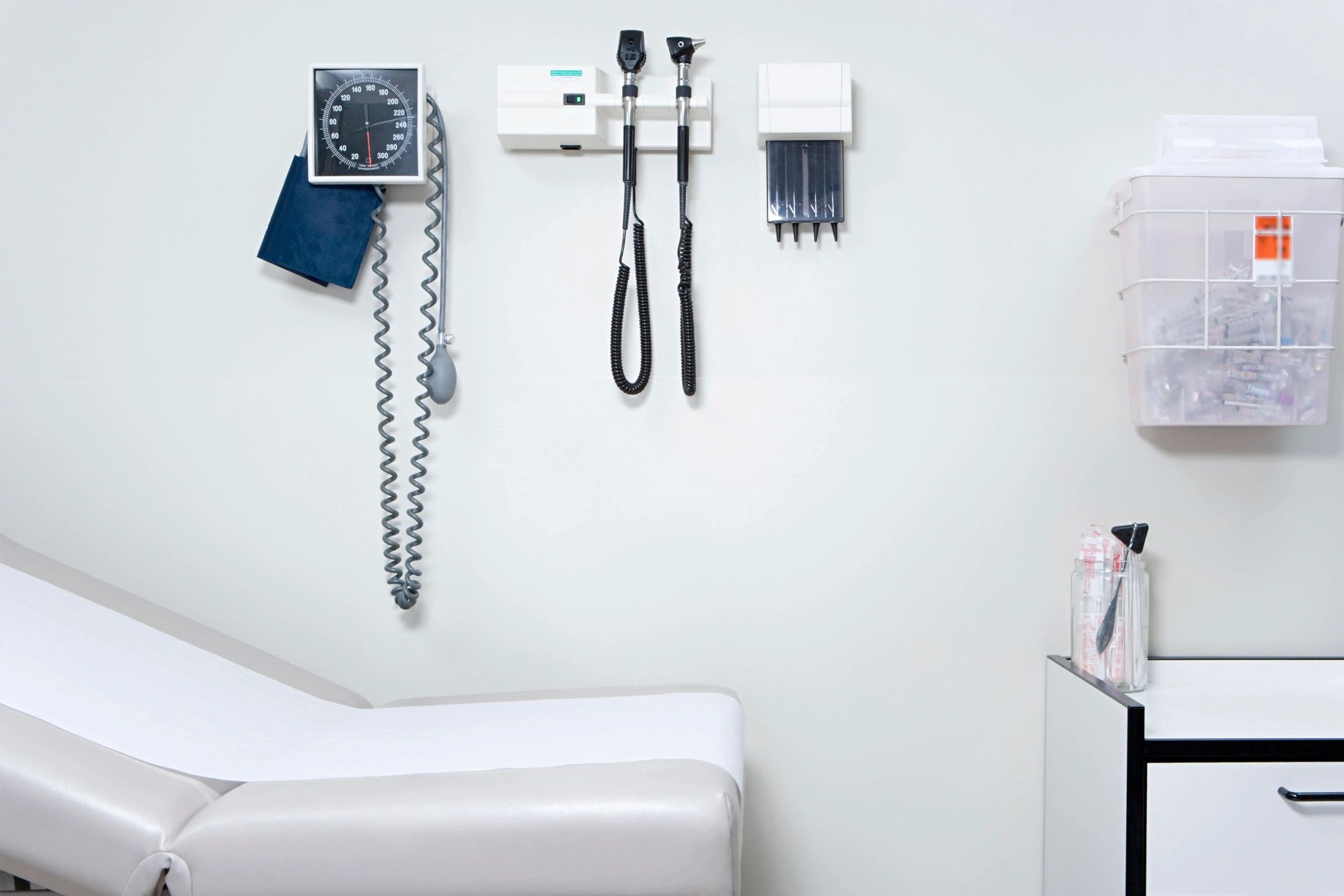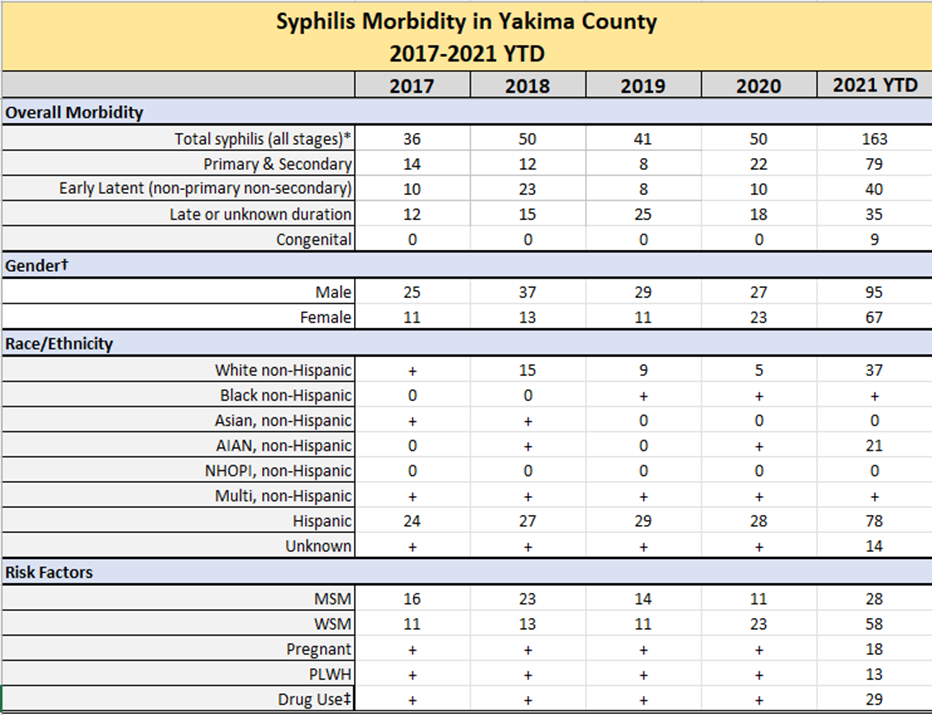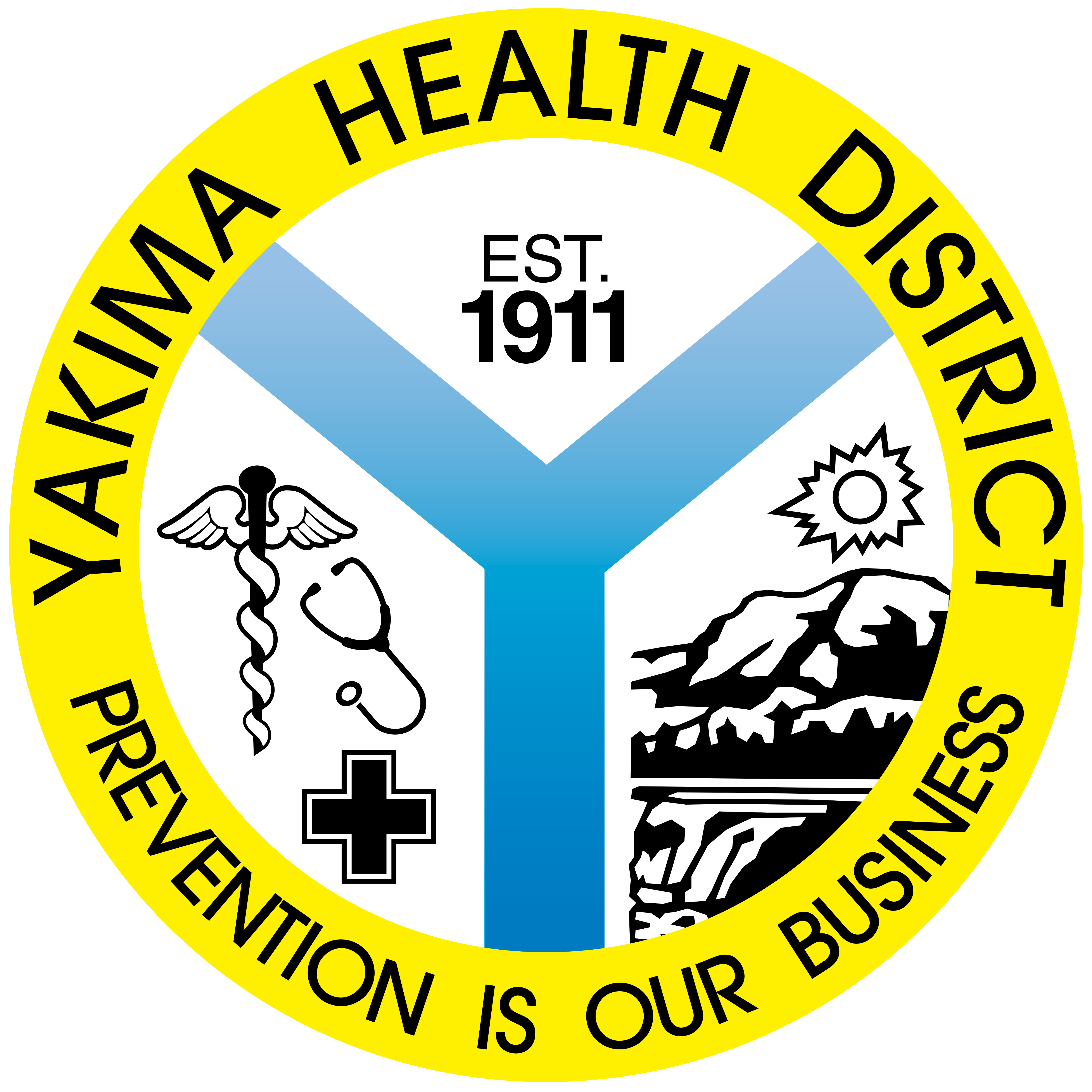
Requested Actions
- Be aware, Yakima County reported a 326% increase in syphilis cases in 2021 compared to 2020.
- Optimize syphilis surveillance in pregnancy to reduce the risk of congenital syphilis.
- Test all women in the first trimester or at presentation to care if presenting after the first trimester
- Test all high-risk women again in the third trimester AND at the time of delivery. The following risks constitute “high risk”: homelessness; methamphetamine, cocaine, opioid use; exchanging sex for money, drugs, or other commodities; having a sex partner who is a man who has sex with other men.
- Consider repeating syphilis testing in the third trimester OR at the time of delivery for all pregnant women until syphilis rates in the community have declined.
- Screening for all individuals should be with RPR or EIA but any positives must be confirmed with a titer. See CDC STI treatment guidelines or consult with a Yakima Health District Communicable Disease team member.
- Treat anyone with symptoms of primary or secondary syphilis and anyone reporting sexual exposure to a person with confirmed syphilis. Serology is required to track treatment success but do not await results to initiate treatment. Primary syphilis, secondary syphilis and early latent syphilis are all treated with 2.4million units benzathine penicillin G IM once. Late latent syphilis requires three injections spaced at weekly intervals. Contact YHD or reference the CDC STI treatment guidelines below for treatment options for PCN-allergic patients.
- Counsel all sexually active individuals about risk factors, signs, and symptoms for syphilis as well as about syphilis prevention.
- Screen all individuals at risk for syphilis or with suspected syphilis infection for neurosyphilis through questions about recent changes in hearing or vision. If neurosyphilis symptoms are present the individual will need more extensive testing- please consult the CDC STI treatment guidelines below, the YHD, or an Infectious Disease physician.
- Test all sexually active men who have sex with men (MSM) at least annually, and those who have HIV or use methamphetamine every 3 months. Patients who are not sexually active or who are in mutually monogamous long-term relationships do not require screening.
- Test heterosexuals who pay for/ receive money or drugs for sex (or who have anonymous partners) for syphilis at least annually.
- Report all syphilis cases to the Yakima health District within 1 working day: https://www.yakimacounty.us/363/Notifiable-Conditions
Background
In 2021, Yakima County saw 163 cases of syphilis, which is a 326% increase from the previous year in 2020. Approximately one third of these cases were among women who have sex with women (WSM) population. Additionally, of the 163 cases of syphilis, 95 were among male. There has been an increased incidence of congenital syphilis in Yakima County, with 9 cases reported in 2021, compared to 0 cases reported in the previous years (2017-2020).

Data Note:

Syphilis
Syphilis is a notifiable condition in Washington State. These notifications allow local public health departments to identify and treat case contacts.
Primary syphilis is characterized by a painless, firm ulcer at the site of inoculation with or without local lymphadenopathy. Secondary syphilis often presents with a generalized maculopapular rash on the trunk with or without palmar and plantar lesions. Rarely this rash can be pustular or involve wart-like lesions, mucous patches, alopecia, or non-dermatologic symptoms such as malaise, fatigue, arthralgias, sore throat or lymphadenopathy. Neurosyphilis is an uncommon but important potential complication of syphilis infection, occurring at any stage of infection and potentially leading to hearing loss, blindness, gait disturbance, paralysis, or stroke. Syphilis can be easily treated when detected through appropriate screening.
The Yakima Health District, located on 1210 Ahtanum Ridge Dr, Yakima, WA 98903, provides STI testing and treatment for individuals on Wednesdays from 8:30am-4:00pm. This service is provided at no cost to the individual and no appointment is required. For more information, individuals can visit STD Services on the Yakima Health District website.
